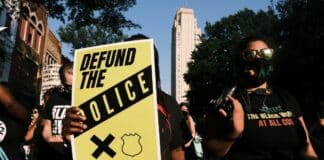The U.S. Food and Drug Administration announced Friday it would delay its decision on administration of the Moderna vaccine to adolescents, citing concerns the shot may lead to a heightened risk of a rare heart condition.
The FDA has not yet determined if the risk is higher for adolescents, but the agency is planning to review the data further before extending the vaccine’s eligibility, according to the Wall Street Journal.
“I think people can be reassured that the risk of myocarditis with an mRNA vaccine is low, it appears to be balanced between the different products,” Paul Burton, Moderna’s chief medical officer, told the outlet.
Myocarditis is the inflammation of the heart muscle, with symptoms including chest pain, shortness of breath, and feelings of having an abnormal heartbeat. The inflammation typically occurs a few days after the second COVID-19 vaccine injection, according to the Centers for Disease Control and Prevention .
It is unclear how long the delay on the Moderna vaccine will continue, with one person familiar with the issue saying it could last for weeks, the outlet reported.
Finland similarly announced on Oct. 7 it would pause distribution of the Moderna COVID-19 vaccine to younger men after a study found that men 30 and under who took the Moderna vaccine had a slightly higher risk of developing myocarditis.
Swedish and Danish health officials announced on Oct. 6 they would also pause the use of the Moderna vaccine for all young adults and children, citing the same unpublished study as Finland.
The FDA still encourages nonadolescents to get vaccinated, including with the Moderna vaccine.
On Thursday, the FDA panel unanimously endorsed a half-dose booster shot for older and at-risk adults. The panel also supported a booster shot for all adults who received the Johnson & Johnson COVID-19 vaccine.
Despite some concerns regarding the COVID-19 vaccine, a majority of U.S. residents are vaccinated. Around 65.8% of U.S. residents have received their first vaccine shot, with roughly 56.9% fully vaccinated against COVID-19, according to the CDC .






